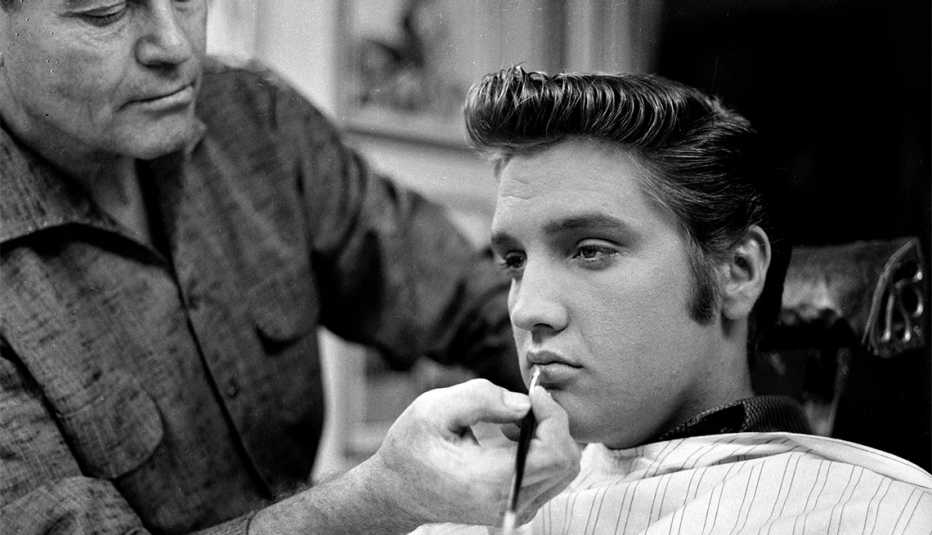AARP Hearing Center
Much of Elvis Presley lore has been reduced to pop culture caricature. The swiveling hips. The curled lip. The sequined jumpsuits. The garish Graceland mansion he bought for his adored mama, Gladys.
It all added up to the king of rock ‘n’ roll: obese, diabetic and addicted to painkillers, taken from the world at age 42 by a heart attack.
If Thom Zimny, the director of a spellbinding new documentary about Presley, has his way, that king is dead. Six years in the making, Elvis Presley: The Searcher, a two-part, three-hour documentary premiering April 14 on HBO, admirably shifts the focus from myth to music in a sensitive, comprehensive and revealing examination of the forces that shaped Presley and the depth of talent and passion that took him to international stardom.
The CliffsNotes version of Presley’s life, found in too many biographies and anniversary specials, dwells on early sizzle and late decay, overlooking the rock icon's fervent creative quest to find his voice and musical identity. The Searcher probes beneath the lazy headlines, from Presley’s impoverished childhood to his final Jungle Room recording sessions in 1976.
Zimny was granted access to the Presley estate’s video and audio archive. He also cast a wide net to gather previously unreleased recordings and images, resulting in a pool of 6,000 photos as well as copious film footage and every studio session from Presley’s entire recording history.
Pearl Jam guitarist Mike McCready provides a superb original score. Viewers hear various influences perform and Gladys (for the first time) singing gospel songs. But it is Presley’s music that sets the mood for every turn, especially the less familiar material. Zimny spotlights the sad and gripping "Hurt," recorded in the studio at Graceland roughly a year before Presley’s death, and the power and poignancy of his vocals underscore the magnitude of the music world’s loss in 1977.
Sony Legacy has released the soundtrack to Elvis Presley: The Searcher (available digitally and as a single CD or double vinyl LP), with 18 songs as heard in the documentary, including rarities and such hits as "Heartbreak Hotel," "Hound Dog" and "That’s All Right." A 3-CD deluxe edition box set holds 55 tracks, including songs that inspired Presley's and McCready’s original instrumentals.
The Searcher's first part details his youth in Tupelo, Miss., his musical awakening in Memphis and his swift rise to fame.



































































More From AARP
How Elvis Got Reinvented and Blood, Sweat & Tears Was Destroyed
Documentarian John Scheinfeld tells the stories of two triumphant, tragic ’60s superstar acts
How Accurate Is the Movie ‘Elvis’?
Presley expert Alanna Nash rates the truth of each scene
Stars Who Played Elvis On-Screen
The 10 best Presley impersonators, from Don Johnson to Harvey Keitel